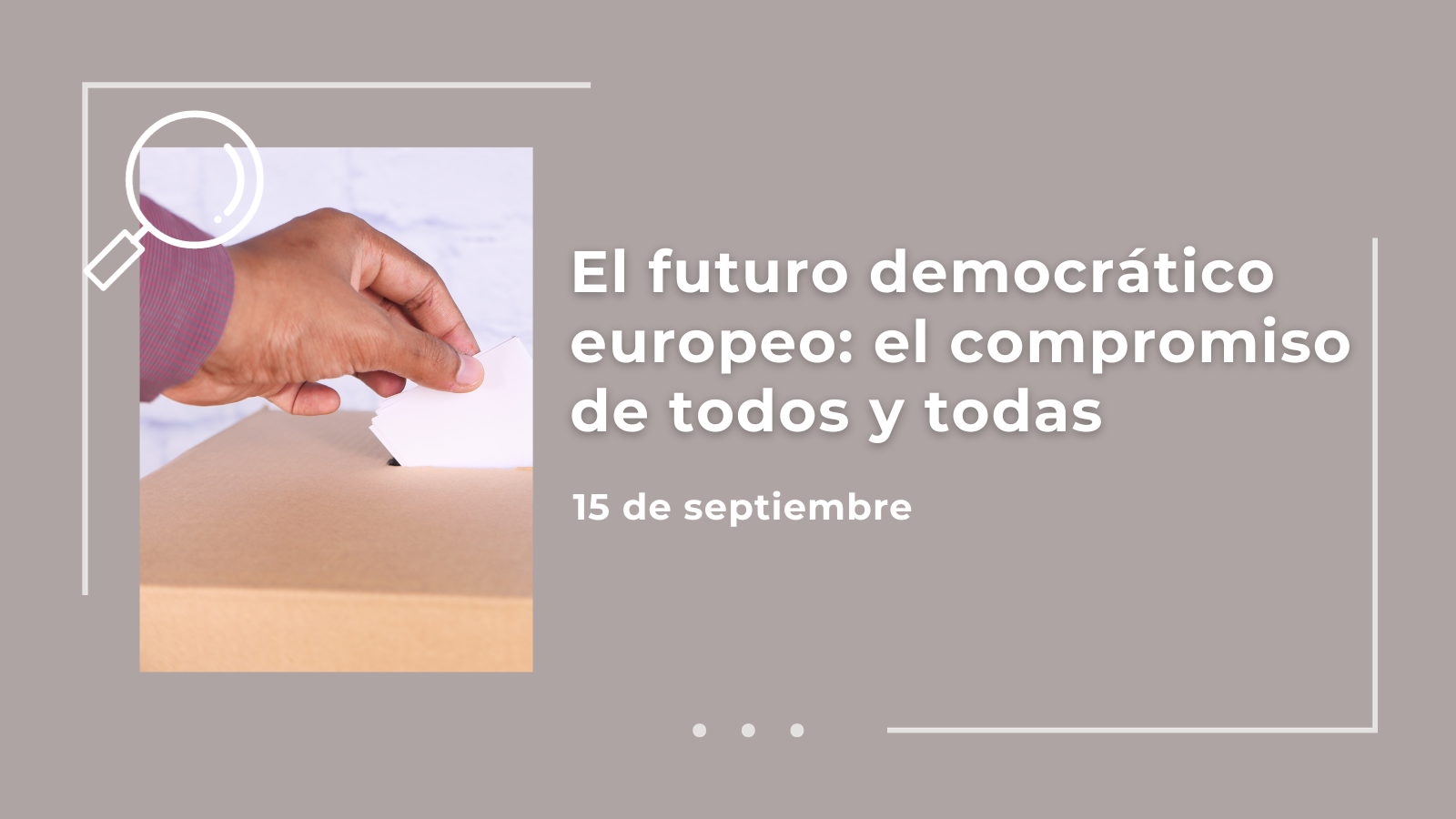
The democratic future of Europe: everyone’s commitment
In 2007, through the resolution on the “Support by the United Nations system of the efforts of governments to promote and consolidate new or restored democraciesThe United Nations General Assembly’s “World Day for Safety and Health at Work” was declared the “World Day for Safety and Health at Work”. September 15 as International Day of Democracy. This day is intended as a reminder that “democracy, development and respect for all human rights and fundamental freedoms are interdependent and mutually reinforcing”.
In addition, States are invited to encourage programs that ensure and promote democracies, since it should not be forgotten that democracies share characteristics, but that there is no single model. In doing so, the Assembly reaffirms “the need for due respect for sovereignty, the right to self-determination and territorial integrity”.
However, our societies today are facing scenarios where democracy is endangered. Not only has press freedom experienced a worldwide decline, but overall the degree of democratization of countries globally declined in 2020 for the first time since 2010. Only 45.3% of the world’s population in 2023 will live in democratic countries according to “The Economist”. This map, produced by the same newspaper, shows the global democratization indexes.
Among the dangers to which societies are threatened is the emergence of autocracies from within democratic parties. This is the case of governments such as Hungary’s, where fundamental rights are being undermined by the very people and institutions in power.
La European Parliament Resolution of June 1, 2023, on the violation of the rule of law and fundamental rights in Hungary and the freezing of EU funds (2023/2691(RSP)) highlights a violation of the independence of the institutions, the detection of 1993 irregularities in relation to the European Structural and Investment Funds and the excessive use of force, among other problems. The European Parliament thus condemns in this resolution “the deliberate and systematic efforts of the Hungarian government to undermine the founding values of the Union as enshrined in Article 2 of the TEU”.
Similarly, the environmental degradation is positioned, for example, in Latin American countries as one of the major factors that may deteriorate the quality of democracies, producing “the risk of moving to scenarios of greater scarcity, mainly of public goods such as access to water, a greater impact of natural disasters and, ultimately, aggravate the vulnerability of countries to their effects.”
Polarization, on the other hand, also weakens democratic dialogue, since in these contexts the opponent is interpreted as an enemy to be defeated and not as someone with whom to discuss and negotiate. This creates the conception of an “us” and a “them”, perceiving the opposite as a threat. Against this conception, the use of any tool is legitimized, even those that are anti-democratic.
For all these reasons, FIBGAR strongly supports solid democracies and the construction of a strong and sustainable rule of law. In this way, we carry out different initiatives that promote democratic values and policies. The courses “Universal Jurisdiction: The commitment for a better world” and “Guardians of the planet: the rights of indigenous peoples” promote, through training accessible to everyone, knowledge of legal tools and social realities that harmonize with the concept of democracy and equality.
On the other hand, through the PATFox project, FIBGAR gives visibility to one of the problems currently threatening our democracies. This is the use of what are known as “SLAPPS”, which are abusive lawsuits filed against individuals or organizations – in most cases against journalists, activists or whistleblowers – who have denounced suspicious practices, with the sole purpose of intimidating and ultimately silencing. This project seeks to train the lawyers of these human rights defenders to be able to confront this strategic legal warfare used by political and corporate powers.
Laura María Cabello Pérez, FIBGAR collaborator.



